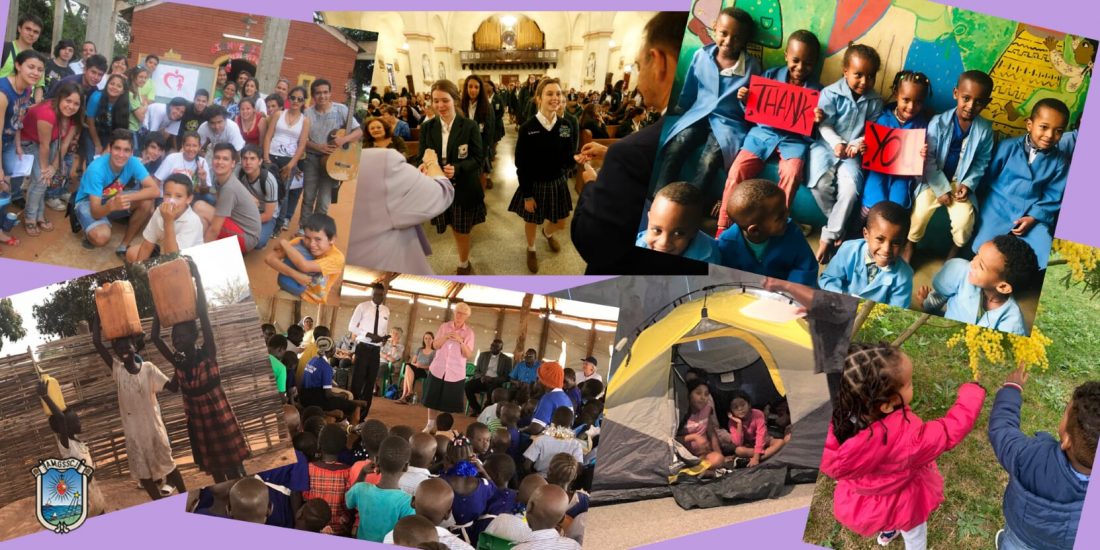Integral Development of the Person
Mother Cabrini wrote to the students of the Magisterium Institute:
If every child who has been entrusted to us in our schools… if we not only instruct his mind, but educate his heart…
My good daughters, make not only a school of literature, science, mathematics, history, but also a school of customs, of Christian moral soda, and in this way you will have made a great service, not only to religion, but to your homeland…” (Letter to the Pupils of the Institute of the Rome Magisterium , Chicago, February 1906).
The symbol of the Heart (to which I would like to dedicate a separate article) points directly to the most intimate and integral part of the person. Beyond the words that are meaningful at a time, Mother Cabrini indicates how education should have as focus the integral development of the person. And this, I believe, is something that will always remain in force, regardless of the purpose to which our educational systems will tend in the future… “school” can disappear, but not education. It is an extremely broad subject and there is a lot of good literature dealing with it. In this brief reflection, I would like to refer only to three aspects that seem to me particularly important.
Education of the Heart in Affirming Identity
Firstly, an anthropological view is at issue here. In the West, dualism has its roots in a distant past to be minimized. The Christian tradition, for its principles and its practice, has conceived the human being “divided in two parts”, body and soul, it has also has given him a moral, let him identifying the good with the spiritual part and, the body with the place of the senses, of emotions, of pleasure, or rather of evil, of what is obscure and suspicious, which must therefore be hidden, dominated, repressed….For this reason we must emphasize strongly that we come from the hands of God, and that we are made in His image and likeness (Gen 1:26-27), therefore, “very good” as written in the Genesis book (Gen 1:31). Our body, together with all creation, is called and anxiously awaits redemption (Rom 8:19-23).
Education of the Heart in Creating Community
Secondly, there is also a clear conviction of the community. Just as the family is the primary educator of every human being, the school is also called to collaborate in this task. The whole school, as a community, has the principal task of educating through a network of relationships where everyone grows integrally thanks to the experiences and life of community…
“We need to make all our institutions better equipped to be more welcoming to young people, since so many have a real sense of being orphaned. Here I am not referring to family problems but to something experienced by boys and girls, young people and adults, parents, and children alike. To all these orphans – including perhaps ourselves – communities like a parish or school should offer possibilities for experiencing openness and love, affirmation, and growth. In a word, to create a “home” is to create “a family”. “It is to learn to feel connected to others by more than merely utilitarian and practical bonds, to be united in such a way as to feel that our life is a bit more human.” Papa Francesco, Christus vivit, 216-217
Education of the Heart in Empowering us to Fulfill our Vocation of Love
Finally, I want to explicitly consider a possible risk. Education can also be an instrument of manipulation, indoctrination, subjugation and control, adaptation to a certain “status quo”, in short, domination and creation of dependence. Therefore, we cannot but consider the centrality of the Heart of Jesus in Mother Cabrini’s life and, in what she meant by “Education of the Heart”. The Heart of Jesus, symbol of God’s love, “center of the center” of every Christian reference, speaks to us of the sacredness of our heart, that is, about how sacred we are. Jesus “loved with the heart of a man” (Gaudium et Spes, 22). In him is revealed our condition as children of God, but also the possibility of loving like him: “I give you a new commandment: that you love one another; as I have loved you” (Jn 13:34), because our heart is like His, because we are like Him. There is no greater proclamation of liberation than knowing and considering ourselves all “children of God”, called to the universal vocation of love. That is, being called to the full exercise of our freedom, as a path of personal fulfilment and as humanity.
Education of the Heart is what helps us to discover who we really are and all that God has already done in us, like Mary in the Magnificat: “My soul magnifies the Lord, great things the Almighty has done in me” (Lk 1:46.49). Therefore Education of the Heart is what can help us, even in times of isolation, to free ourselves and put on wings.
Pablo Cicutti
Buenos Aires, Argentina, July 2020
Pablo Cicutti is a theologian, a layman, and has been accompanying the Cabrinian communities in Argentina theologically and pastorally since 1994.

